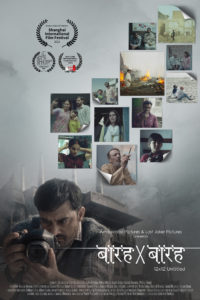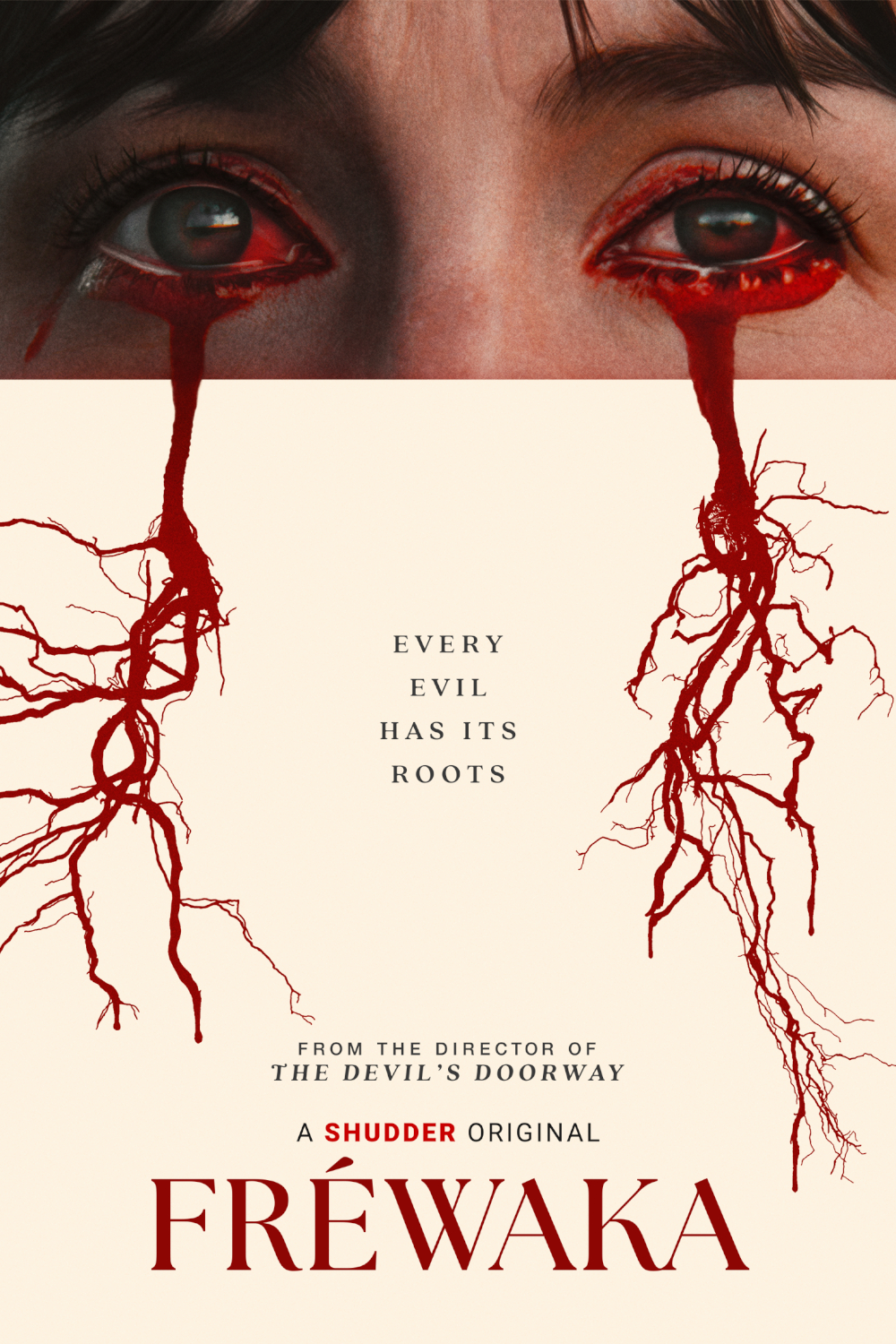
NYC SAFF 2021 Indie Film Review “Barah By Barah”
WATCH THE TRAILER HERE
First, the Recap:
The end. Over and done. Onwards into eternity. If there’s one thing in this world many might not wish to accept or entertain, it’s the realization that this earthly existence is impermanent, destined to come to a close, ideally with the peace that it’s been a life worth living. While we’re still drawing breath, therefore, it is always hoped that what we experience will be worthwhile and lasting for those who will be carrying on after we leave. However, what might it be like if the very thing that you sustain your own life with IS that very thing–cessation? Death photographer Sooraj (Gyanendra Tripathi) is a, well, dying breed. Trying to earn enough to support his wife Meena (Bhumika Dube) and son Anshu (Prithvi Singh) via the pictures of the dead he takes along the seemingly endless burning banks of Manikarnika Ghat in Kashi. Watching as the ancient city is literally being demolished around him to make way for relentless modernity, it casts a pall upon not only the city’s sacred history, but Sooraj’s quickly fading future.
Next, my Mind:
The price of progression, weight of providing for one’s family, dreams of better opportunity, deconstruction of personal and historical legacy, frustrations of becoming obsolete, and the simple burden of being unsure what direction one’s overall journey is being guided to, this 118-minute indie film from writer/director/producer Gaurav Madan, writer/producer/cinematographer Sunny Lahiri, producer Jignesh Patel, co-producers Tanuj Bhramar and Karan Singh, plus executive producers Abhay Parveen Gupta and Subhash Jha makes a highly strong impression and overt statement about the nature of indie cinema and the distinctly unflinching, daring thematic foundations this genre of films strives for. Having its NYC Premier as the Centerpiece Film screened at the 2021 NYC South Asian Film Festival sponsored by Toyota USA and hosted by Festival Director/Jingo Media Founder Jitin Hingorani and Artistic Director Ambica Dev, it was most certainly a deep, emotionally heavy dive into harsh realities and sobering truths about contemporaneousness’ repercussions.
Definitively an outside-the-mainstream effort, the narrative centering on a struggling death photographer managing to barely eke out a living for his family via immersing himself in existence’s termination thanks to the burning funeral pyres along the Ganges in the now-transforming city of Kashi, it’s a blatant exercise in slow burn that, frankly, your average filmgoer might not have the patience for. This would be unfortunate, through, as while this is a fictional work, the hard actualities making up the plight of India’s most holy site in Hinduism and Jainsim and the means by which our contemporary world is encroaching upon, plus literally destroying and re-forming, aspects of it is completely real and disheartening to see. It does serve as a perfect backdrop for the story’s primary gist and relates then to both the city’s and the lead character’s undeniably steady decline, fostering a questioning of what it will take to discover more advantageous and fulfilling prospects and renewed expectations for hope.
Additionally, the film delves into notions of experiencing only vague contentment in life, inwardly yearning for something far more rewarding, attempting to survive what has become just mundane routine, still seeking to maintain family stability and unity, taking pride in what we do even when it isn’t our ideal choice, caring for an aging parent, and making effort to understand the entire concept of life vs. death, it all melds together through the seven chapters the film is broken down into–Barber, Son, Friend, Wife, Sister, The Last Photograph, Death, Life, Etc.–in order to emphasize these specific facets of Sooraj’s present outlook and ongoing circumstances shaping his path, whether for good or ill remaining a constantly fluctuating endeavor. The visuals here are so affectingly raw and hauntingly visceral given the locale and events being presented, especially when we’re given the sheer scope of the burning banks themselves, which alone is enough to induce chills in its magnitude and significance.
Also, just taking in the imagery of such a hugely long-lived, time-honored, incredibly sacred city being put into ruin all for the sake of this world’s need to have everything “up-to-date” or reengineered for the sake of contemporization acutely impacts you as a viewer a well, almost to the extent of longing for much simpler ages gone by when technology and its supposed paramount importance didn’t even exist, yet we still survived. Tripathi completely sells us on the atmosphere of desolation of home, career, and soul with intentionally understated passion through his performance as Sooraj, a man quickly becoming a relic of the past as a death photographer beginning to lose out to streamlined and always advancing means of doing what he does, all while being harried in heart and mind by what it all signifies for the future of his family. Seeking to make the decisions that will best suit his initially unsure plans, Sooraj must find his way through a fragmented present to uncover a newly revitalized, enlivened, and replenished existence for all he loves.
It’s a beautiful study in expressively intense acting but subtle in its delivery, which only serves as a credit to Tripathi’s ability to engage us with a character whom, on the surface, doesn’t APPEAR that interesting. It’s what I love about indie film, and Tripathi does such wonderful justice to the purposeful pacing offered in the story as his character moves through it. Dube offers us a moving portrait of a wife in both supportive and long-suffering situations in her turn as Meena, who just like Sooraj is questioning the ongoing validity of where they find themselves as a family, even though overall their life while humble is still a life. But, whether in agitation or calm empathy towards her husband, Meena always strives to push when needed and stand back when asked to be there for Sooraj, and Dube navigates these shifts with grace and poise. It’s a more realistic illustration of the ups and downs of marriage, but in a manner that stresses sticking it out, even when it’s difficult, and I felt Dube portrays this idea very well, too.
Primary supporting roles arrive from Prithvi Singh as Sooraj’s son Anshu, Geetika Vidya Ohlyan as Sooraj’s sister Mansi, whose patience with her brother and his dilemmas may or may not be running low even as she does desire to be there for him, Akash Sinha as Sooraj’s friend Dubey, Harish Khanna as Sooraj’s aging father who lives with them and tries to not be a burden while also being a voice of reason, and Aashit Chatterjee as a local death photographer whom represents the new breed of professionals in the mix and with whom Sooraj has contact with. So, in total, “Barah By Barah” is independent cinema in one of its most foundational forms, as non-mainstream as it gets, executed with a methodology that is as profoundly philosophical as it is starkly uncomplicated. Conveying its notions about death, heritage, the questioning of relevancy, and the urgent need to hope for betterment of one’s life with a compelling, even if enervated and weightier in its grander tone, it is a film more than worth bearing with in order to ascertain and entertain our own thoughts about being and, one day, moving onwards.
Miss viewing “Barah By Barah” at either physical festival? Worry not! You can still check out the film for a few more days online as it currently screens as part of Virtual SAFF 2021!
As always, this is all for your consideration and comment. Until next time, thank you for reading!



